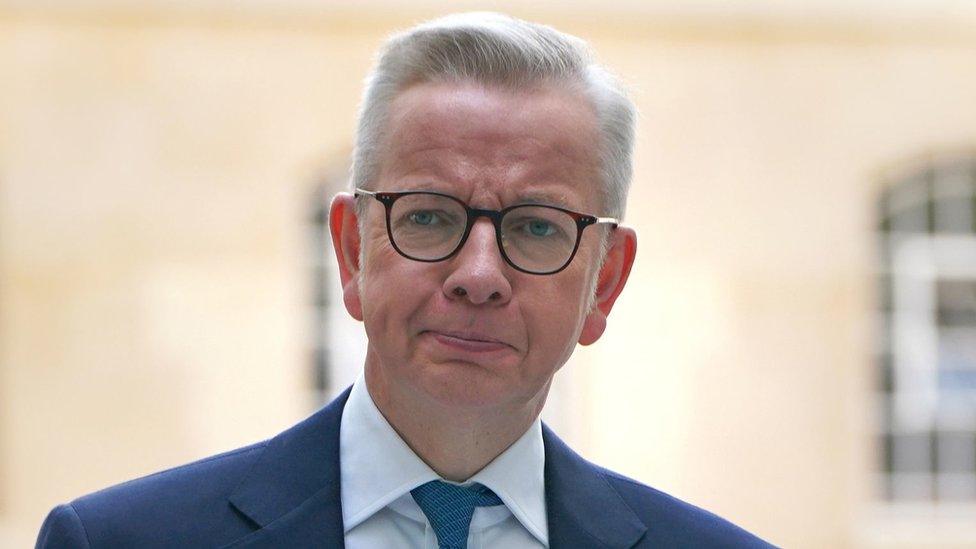The vote on the Partygate report was about core principles - and blunt politics
- Published
- comments
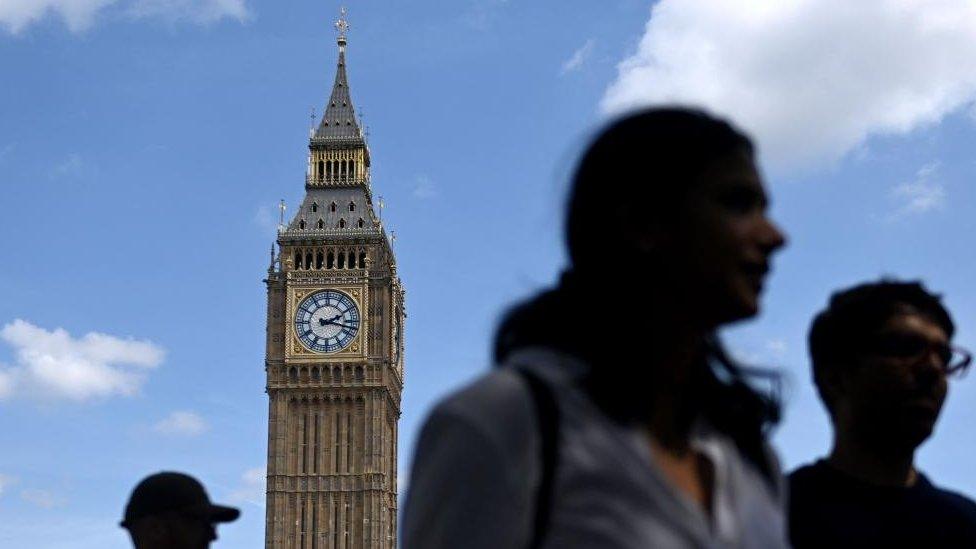
The overwhelming mood was one of cathartic anger.
A sense from MP after MP - over five hours of debate - that Boris Johnson's actions and his words had managed to debase them all: debase politicians, debase politics, debase democracy.
Those speaking up for Mr Johnson were few and far between.
Even though the sanction against the former prime minister, who has already given up as an MP, was almost academic - Mr Johnson losing his right to a pass to access the Palace of Westminster - and the outcome of the debate near inevitable, this was a debate with energy and verve, with a core principle at its heart.
Without being able to assume what you are hearing is the truth, what is the point?
But there was also some blunt politics in play.
There wasn't really any need for a vote at the end of it all. It was obvious where the balance of opinion lay.
But it is mighty useful for opposition parties to be able to directly label individual Conservative MPs on how they chose to vote and whether they chose to vote.
118 Conservative MPs backed the Privileges Committee report. Among them, Chief Whip Simon Hart and the education secretary for England, Gillian Keegan. Seven voted against it.
But that means more than 200 Tory MPs - the prime minister, the deputy prime minister, the home secretary and the foreign secretary among them - did not vote at all.
It was, to use the jargon, a "free vote" on what is called a "one-line whip" - Conservative MPs could choose how or whether to vote without fear of party sanction. But that so many were equivocal will be seized upon by their political opponents.
Already Labour and the Liberal Democrats are branding the prime minister as "weak", who has gone out of his way in the last few days to swerve questions about it all by a country mile.
So ensuring there was a vote wasn't merely a way of quantifying Parliament's anger.
It was also a tool to needle away at the conflict many Conservative MPs wrestle with about Boris Johnson: his role in winning the last election, perhaps helping them win their seat. His role in delivering Brexit.
His role in Partygate, his spectacular downfall and the turmoil he has provoked in the last ten days.
The vote means a one-sentence description on how they approached it can be attached to every Conservative MP.
Don't be surprised if one or two of these lines pop up on election leaflets before long.
Related topics
- Published19 June 2023
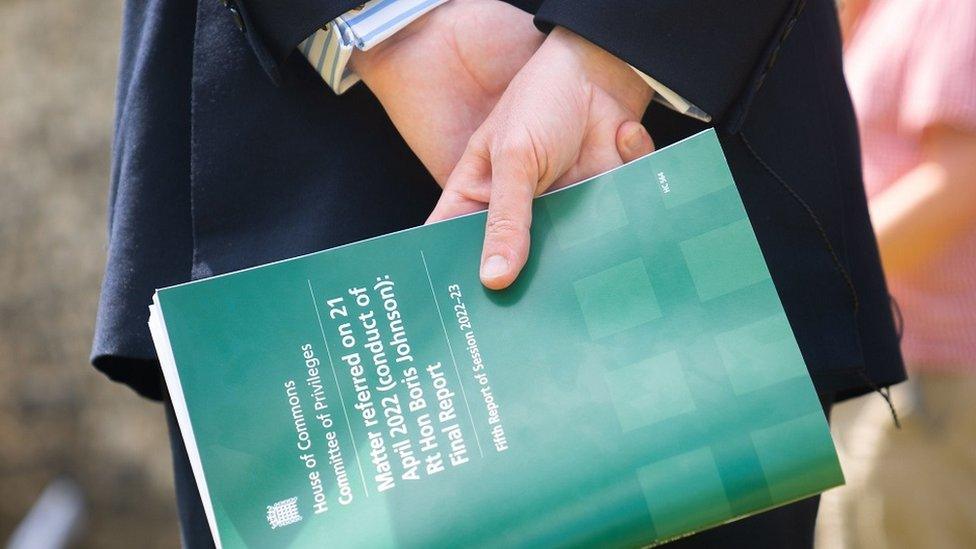
- Published20 June 2023
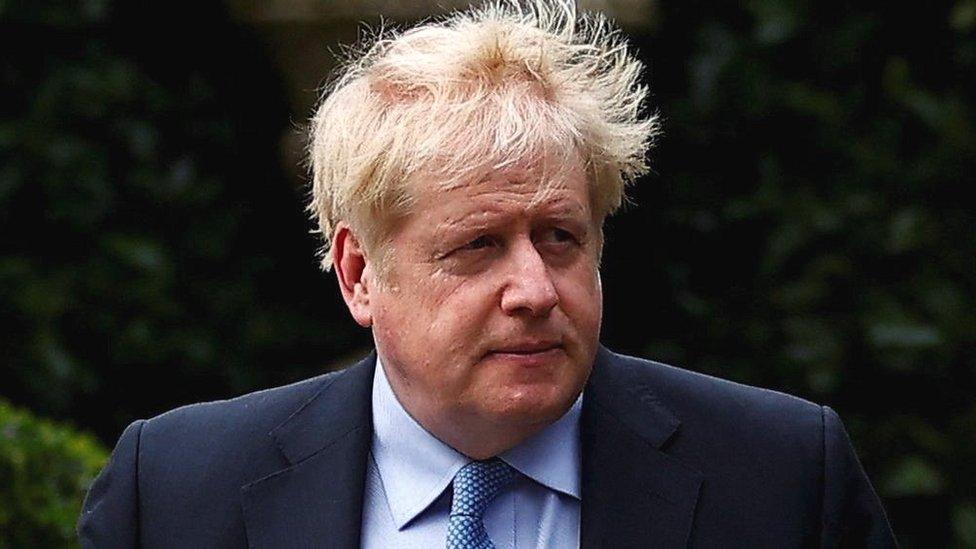
- Published15 June 2023
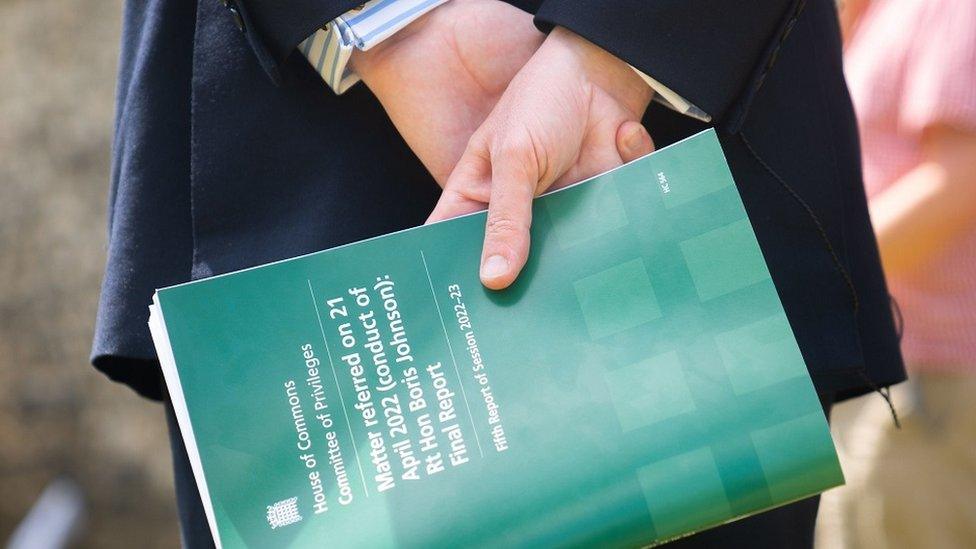
- Published18 June 2023
